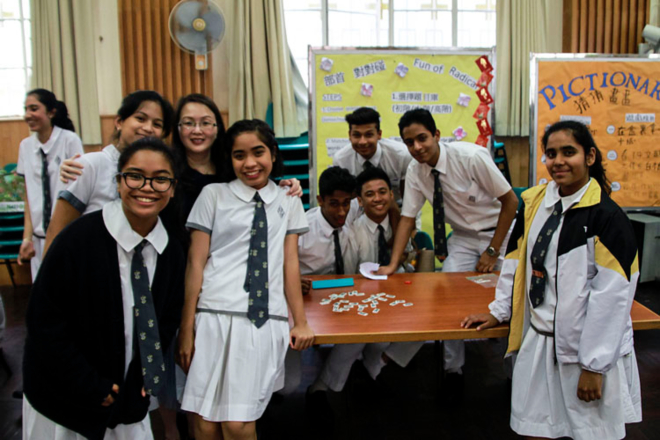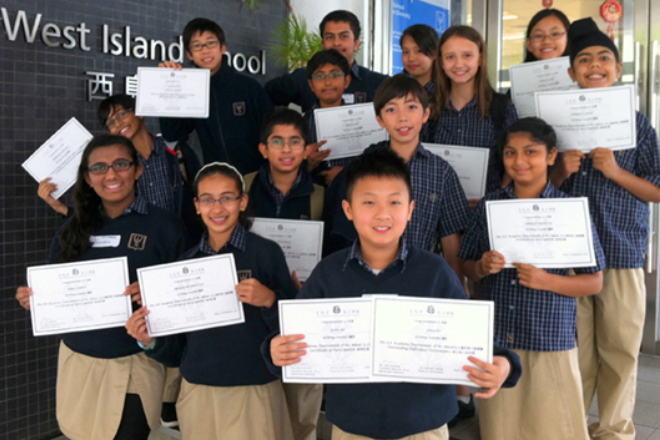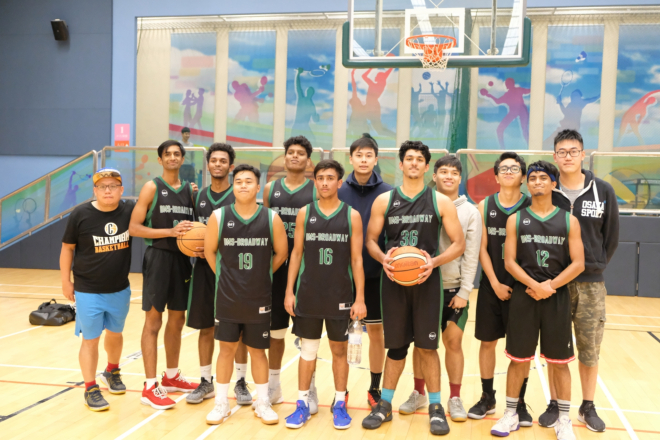Staying true to its reputation of being an international city, Hong Kong offers a wide selection of schools with various curriculum from all over the world. But with so many options on the table, finding the right school for your child can be a stressful task. From public locals schools to international and private schools, we break down all the different types of education on offer in Hong Kong. Tuition fees vary greatly between different systems and schools, so be sure to visit the websites for more information.
[pro_ad_display_adzone id="73367"]
[caption id="attachment_133359" align="aligncenter" width="660"]
 Ying Wa Girls' School
Ying Wa Girls' School[/caption]
Public Local Schools
Local schools are typically divided into government schools and grant schools. Government schools, as the name suggests, are run by the Government, while grant schools are run by local charitable or religious organisations. Many of Hong Kong's most prestigious schools with a long history of high academic achievements fall into the latter category. Both government schools and grant schools adopt the local curriculum, which means that Chinese lessons are mandatory. But apart from language classes, the curriculum is taught either all in English (EMI schools) or all in Chinese (CMI schools). Education is provided free of charge all through primary until secondary level in local schools, but only Hong Kong permanent residents are allowed admission. So if your child is a permanent resident, local schools are a great option that won't make a huge dent in your bank account. For more details about local schools, Kate Choyce from Choyce Group goes more in-depth in
this article.
[caption id="attachment_133387" align="aligncenter" width="660"]
 Rosaryhill School
Rosaryhill School[/caption]
Private Schools
Private schools are run by private organisations without government funding (thus requiring a school fee). Some of these schools, such as
Renaissance College and
International Christian School offer the non-local curriculum while others, such as
Rosaryhill School choose to offer the local education curriculum, but provide extra attention for non-Chinese-speaking students, as well as students with special education needs. These schools are managed by the school management committee and have full autonomy of student admission and course content. These schools often provide an alternative to mainstream education, in exchange for higher tuition fees.
[caption id="attachment_133377" align="aligncenter" width="660"]
 Australian International School
Australian International School[/caption]
International Schools
For expatriate or English-speaking families, international schools are a common choice. These schools have full autonomy of student admission, course content, tuition fees, and deliver curricula from an array of different countries, as well as the International Baccalaureate (IB) programme. Some parents may wish to send their kids to schools that offer the curricula of their home countries, however, many of these schools have long waiting lists and strict priority systems, which means priority is usually given to siblings of current students, family members of alumni, and debenture holders. Some examples of international schools in Hong Kong include the
Malvern College Hong Kong, which works closely with Malvern College UK to provide the International Baccalaureate programme at primary and secondary level, the
Australian International School, which follows the Australian national curriculum, and
Nord Anglia International School, an innovative school that takes on a modern approach with high quality learning, while encouraging its students to be creative thinkers and independent learners through enriching opportunities inside and out of the classroom.
[caption id="attachment_133389" align="aligncenter" width="660"]
 West Island School
West Island School[/caption]
English Schools Foundation (ESF) Schools
The
English Schools Foundation (ESF) was established to provide modern liberal education through the medium of the English language, without regard to race or religion. With 22 schools in its group, it is the largest English-medium international school organisation in Hong Kong. The organisation provides a wide range of curriculum, including the International Baccalaureate and the British GCE and A-Levels.
Many ESF schools enjoy subvention from the Hong Kong Government to educate English-speaking children who cannot access the local system, and thus, their tuition fees are generally lower than many other international schools.
[caption id="attachment_133413" align="aligncenter" width="660"]
 Delia Memorial School (Broadway)
Delia Memorial School (Broadway)[/caption]
Direct Subsidy Scheme (DSS)
The Direct Subsidy Scheme (DSS) was set up by the Government in an effort to enhance the quality of private school education in Hong Kong. Under the scheme, these non-government primary and secondary schools receive subsidies from the Government, but enjoy more autonomy and flexibility than local aided schools in designing curriculum, determining school fees, as well as entrance requirements. DSS schools receive a full recurrent subsidy from the Government until the school's tuition fee level reaches 2 1/3 of the average tuition fee of a grant school, provided that half of the student population are doing the local curriculum
(HKDSE), and all students must participate in the local
Territory-wide System Assessment. DSS schools such as the
Delia Memorial Schools have a reputation for supporting the integration of local ethnic minorities with the local Hong Kong community while providing affordable tuition fees.
Read More! Check out these
Schools That Offer Alternative Education for Children in Hong Kong, or explore the rest of our
Family & Education section on
Localiiz.
[button color="blue" size="medium" link="https://localiiz.us4.list-manage.com/subscribe/post?u=c2964a434922598f5d8ee53ff&id=07d327a2e8" icon="" target="true"]Subscribe to receive our weekly newsletter[/button]
 Ying Wa Girls' School[/caption]
Ying Wa Girls' School[/caption]
 Rosaryhill School[/caption]
Rosaryhill School[/caption]
 Australian International School[/caption]
Australian International School[/caption]
 West Island School[/caption]
West Island School[/caption]
 Delia Memorial School (Broadway)[/caption]
Delia Memorial School (Broadway)[/caption]